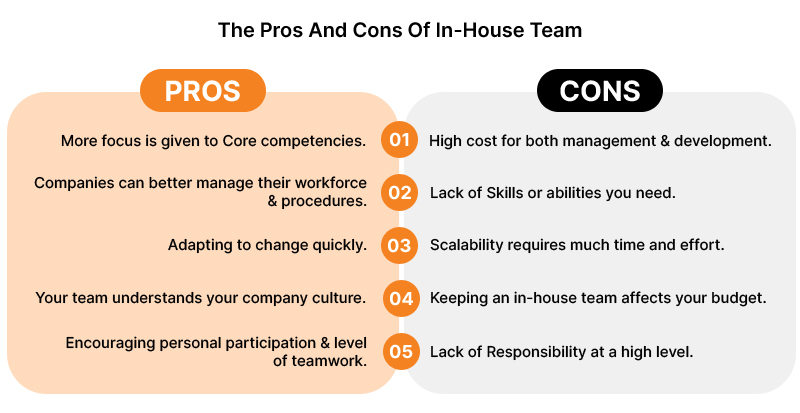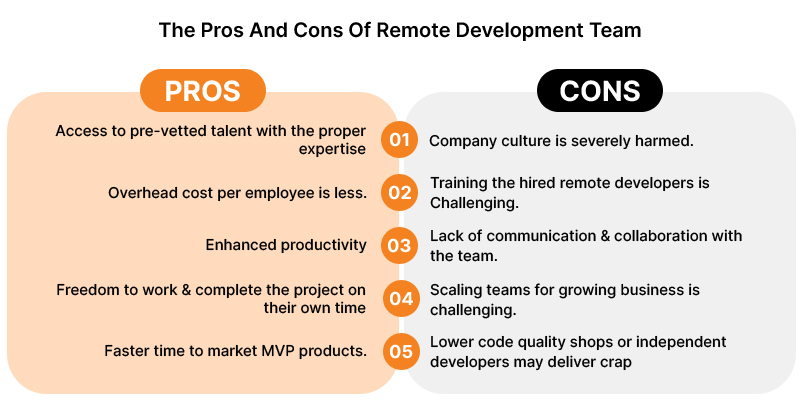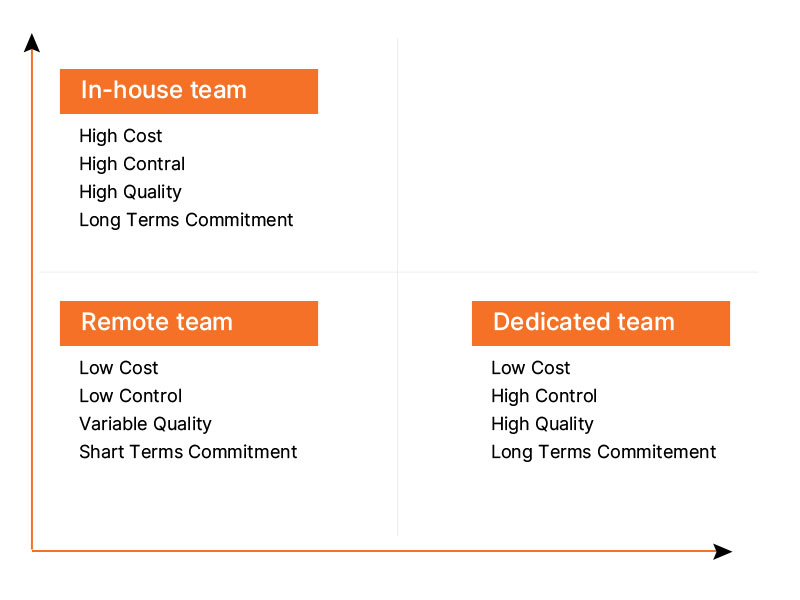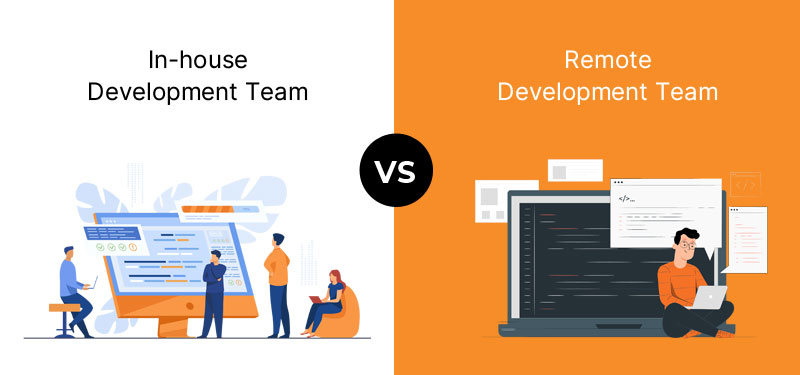Working remotely is no longer a far-fetched concept. Companies have increasingly used the option and the opportunity to outsource their work, employment positions, and projects as a result of technological improvements. This type of modern flexibility has proven to be a boon to businesses, particularly in the aftermath of the pandemic.
The Fact: In today’s market, finding skilled specialists is getting increasingly challenging, especially if you’re on a tight budget. Experienced IT developers, on the other hand, are difficult to come by since they demand high salaries.
Businesses can easily decide to hire a team of remote developers for the project development, but you should question yourself a few things beforehand, such as—
- Is one developer sufficient?
- Is it possible for you to hire an in-house or remote team?
- Can you hire and pay your developer or the entire team for a hired period?
- Is the scope of your project large enough to include complex features?
According to a recent study, 41% of companies around the world are already outsourcing some of their development tasks. This percentage is predicted to rise to 78 percent by 2028.
On this note and to answer the above-mentioned queries, let’s have a look at both in-house and remote development teams to determine which is more suitable for your software development business.
What is In-House Development Team?
In-house development means the development of any project is done through the staff hired by the company. In this situation, the business keeps the development process to itself and hires professionals to grow its core activities. However, they have complete control over staff, the development process, and the funds spent on it.
It provides the highest level of trust and a streamlined team structure and communication. It may be difficult to get top talent, but if you have the means, there is no better option. This is why huge IT firms such as Amazon, Apple, and PayPal excel at this approach.
An in-House Team is Ideal For
- Companies with more resources in the IT field.
- Handling key projects and activities daily.
- Software development has almost limitless money and time.
- Devoting extra time and resources to recruiting and onboarding new employees.
- Protecting data and Intellectual property to a high standard.
- Long-term planning and maintaining the company’s culture.
- The product requires constant optimization and update.
Pros & Cons of In-House Team

However, many firms are abandoning this model to save money, streamline hiring processes, and bring agility to project development while focusing on essential objectives. These are just a few of the reasons why firms are nowadays shifting to outsourcing, particularly remote development.
What is Remote Development Team?
A remote development team is one of the types of outsourcing in which you work with a vendor to engage remote expertise to complete a project with a well-defined scope and timeline.
A customer should have a clear vision of the project to make the most of the remote development team contract. Google, Alibaba, Slack are some of the companies that help you hire remote developers. They take advantage of experienced custom software development at a lower cost. Managing remote teams involves some preparation—finding a vendor, outlining the requirements—however, it is far easier than managing in-house teams.
Remote Team is ideal For—
- Companies that aren’t software development specialists.
- IT firms have more projects as a priority.
- Performing some additional tasks of development.
- Accomplishing the project on time and within budget.
- Executing the changes asked by clients and fixing the bug issues ASAP.
- Acquiring the skills your team lacks.
- Bringing new ideas and creativity to the table.
Pros & Cons of Remote Development Team

In-House vs. Remote Team: Who’s the Conqueror

‘Do what you do best and outsource the rest – Peter Drucker
Both in-house and remote development approaches offer pros and cons, but ultimately, the decision is based on your company’s needs. Before jumping in, think about the deadlines, the cost, and management expertise.
The following are common circumstances for each of the two possibilities.
- When you want a close-knit team that rigorously follows the corporate culture, in-house expertise, and face-to-face contact to manage your software development and management, you Hire an in-house team.
- When you want to save money, improve your skills, scale up/down your team depending on the project and want to market your product faster, you engage a remote development team.
A Comparison Table between In-house Team and Remote Team
| Factors | In-house Team Model | Remote Team Model |
|---|---|---|
| Ideal for Long-term Projects | Yes | No |
| Accountability | High | Low |
| Cross-cultural Gap | No | Large |
| Access to Global Talent Pool | No | Yes |
Wrapping Up
Selecting a suitable hiring model is crucial as it determines the project’s success, saving time, effort, and money. A large company can consider an in-house team since they have an established HR department. However, hiring remote workers may be ideal for smaller companies looking for flexibility and few risks.
Businesses can outsource the entire project or outsource a few tasks. They have to determine their business needs and find an ideal partner for their business. However, business giants recommend hiring a remote team for your development needs as it is the future of recruitment.
If you need more clarification on acquiring a development team, consult a reliable technology partner and make the process easier. Choose your development team effortlessly!
Summary
Kickstart Your Project With Us!
Blog
Popular Posts
CONTACT US
Let's Build Your Agile Team.
Experience Netsmartz for 40 hours - No Cost, No Obligation.
Connect With Us Today!
Please fill out the form or send us an email to
 Don't Miss Out:
Don't Miss Out: 







